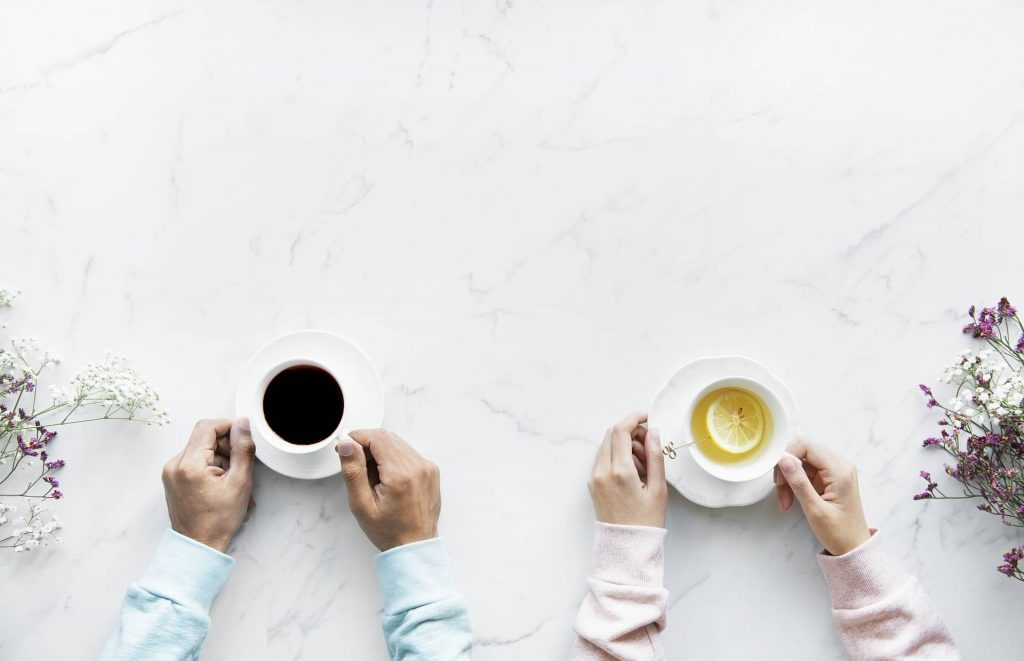Written by Janki Patel
Coffee or tea? This is a common question posed by friends, family, and even the countless baristas in coffee shops all over the world. Before delving into which one is better, it is important to understand the composition of both. Coffee is a drink that is derived from filtered coffee beans, whereas tea is a drink that is normally infused with herbs. They are both prepared with boiling water, which ensures the best flavor, but can be served cold. Even with their natural productions, both coffee and tea have positive and negative effects on their many consumers, physiologically and mentally.
If you need a boost of energy, coffee is the best option. Whereas one cup of tea can have 14-70 mg of caffeine, a cup of coffee can have up to 200 mg, according to Mayo Clinic [1]. As the body is able to feel the effects of caffeine within 10 minutes, coffee consumption allows you to quickly become more energetic and remain so for longer periods of time [2]. Additionally, with the numerous studies on coffee, it has been shown that regular coffee consumption can decrease the chances of developing certain diseases, including Parkinson’s disease, type 2 diabetes, and some cancers [3]. However, even with such seemingly great benefits, coffee can also have negative effects, such as jitteriness, which ultimately leads to an enhanced difficulty in falling asleep [4]. Moreover, coffee is a known diuretic, which can upset the stomach and/or cause dehydration if you are not accustomed to drinking coffee on a regular basis [3].
If you are feeling down, tea is the best option. Due to the herbs and antioxidants present within, tea can calm your nerves easily and help lighten your mood. This can assist with better sleep due to the resulting calmness of the mind and body. In consideration of mental health, drinking tea regularly can reduce the risk of developing depression by 37%, whereas coffee can only reduce it by 8% [4]. Additionally, tea antioxidants can help with weight loss, as they reduce fat cells and allow muscle cells to become more active, which also helps prevent blood clots [2,3]. Of course, tea has its own disadvantages as well. As it has antioxidants that interfere with iron metabolism, drinking tea with a meal can reduce iron absorption by 62%, whereas coffee would only reduce it by 35% [3]. This can negatively impact the oxygen-carrying capacity of blood. Additionally, tea can easily stain teeth, as its natural pigments can easily stick to enamel [4].
Both coffee and tea have their own benefits and disadvantages. When deciding what to drink, it would be practical to first consider what your needs are, what health benefits you find important, and overall, what you enjoy drinking. In the end, both are great drink options that will not only for satisfy your cravings, but will benefit you from an aesthetic standpoint as well.
References:
1. Mayo Clinic Staff. 2014. Caffeine content for coffee, tea, soda and more. Web. 5 February 2017.
2. Cirilli, K. 2012. The Face-Off: Coffee Vs. Tea. Men’s Health. Web. 28 January 2017.
3. Sass, C. 2015. Coffee or Tea? An RD Weighs in on Which Is Healthier. Health. Web. 28 January 2017.
4. Robson, D. 2016. Tea or coffee: Which drink is better for you? BBC Future. Web. 28 January 2017.
